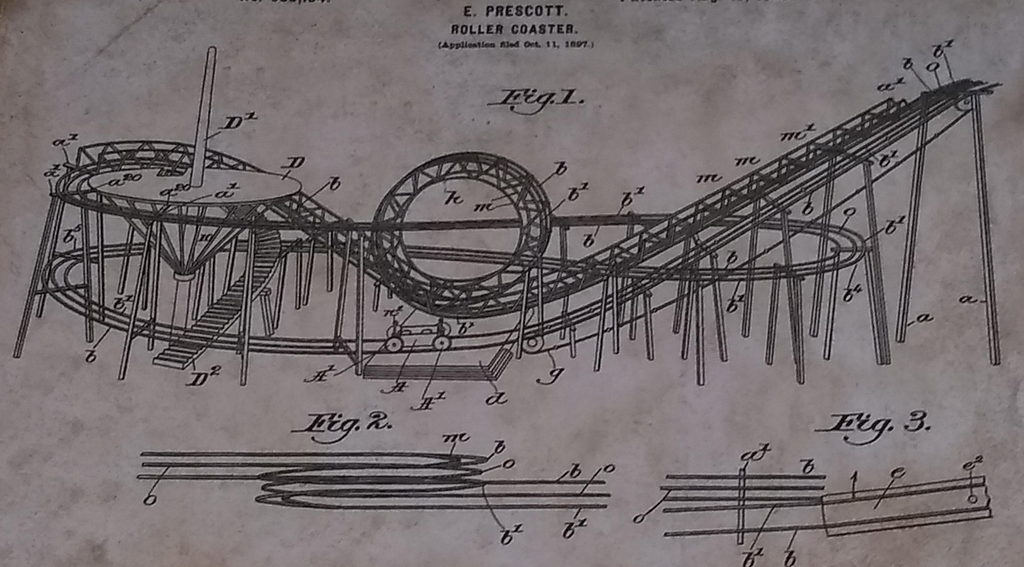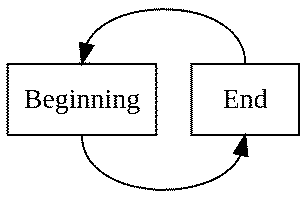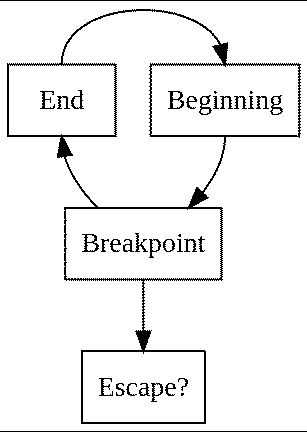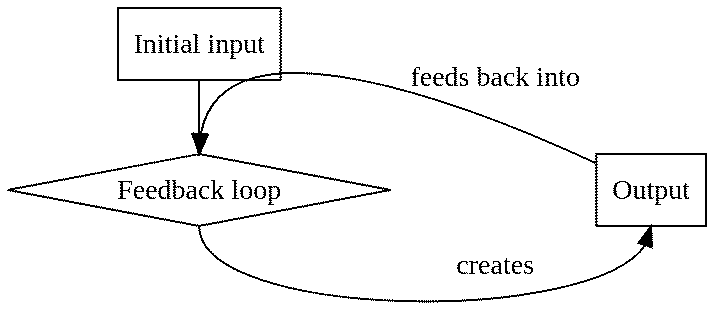Loop Study 000: The Loop

Tomorrow I'm embarking on my fourth hundred day project - a 100-day-straight practice of iterating on an idea, practice, piece of software, etc. Previously I've done:
- 100 Days of Three.js
- 100 Days of Website
- 100 Days of Banjo (not shared publicly anywhere because I am still not very good at banjo)
The hundred days framework works well for me. I do well with structure and consistent deadlines, and "I have to do this every day" is an extremely simple and effective way of creating them. So far I've only missed two days out of three hundred (not counting a ~10-day period where I didn't have a banjo because RyanAir lost it, which I consider an act of God and not legally binding in the court of 100 Days).
However, especially with my last two hundred days projects, I've mostly just shared them with friends in a small accountability group (you know who you are). They've also been open-ended, which can allow for "creative freedom", but can also allow me to cop out and put in less effort. The enemy of art is the absence of limitations, I guess.
To paraphrase a friend, the spirit of a hundred days project is a self-contained output each day, based on a tight theme in a specific medium. If you're doing a hundred days of Mona Lisa, you should make a hundred tiny Mona Lisas, not spend a hundred days working on a single one. So, for this round, I wanted to have a structure that is:
- Focused & specific
- Relates to my "practice"
- Allows for the creation of a unique artifact each day
I'm not limiting myself to a specific medium, but I'd like to follow the spirit of a hundred days project as closely as possible otherwise, which leads us to this project: 100 Days of Loop Studies.
The Loop

I've been fascinated by loops for most of my life. This reoccuring structure, "the end of which is connected to the beginning", crops up almost anywhere you look, and has certainly been a core theme throughout my life. From a mythology-obsessed kid reading about the Ouroboros for the first time, to a philosophy student studying the "strange loop" of human consciousness, to a programmer working with flow control and computational loops, it's kept popping up as a theme in my life and in my work. The recursive loop and the feedback loop seem to me to be the structures at the core of most of human life and behavior. Even my engagement ring was an ouroboros (please don't roast me).
Despite my fascination with loops, I don't have a particular thesis about them, nor anything new to say about them beyond "they're interesting." They're a part of my everyday work and life, and something I think about a lot, but not something I've expressly investigated or talked about in my practice. So I felt that they deserved a closer look.
Loop Studies
For the next hundred days, I'll be doing a "loop study" every day. This will consist of:
- A selected loop (anything from a torus knot to an audio feedback loop)
- A unique visual output either illustrating or produced by the loop
- A definition, in my own words, of the loop being studied. If the loop has already been defined, I must write a new textual meditation on it.
I may revisit the same type of loop multiple times - it seems pretty silly not to allow my project about loops to start looping - but each visual and textual output must be unique.
I'll start this practice with a loop study of the concept of a loop, although tomorrow is my official start date.
The Loop

The basic idea of a loop is a process that repeats itself. Once it hits its endpoint, it starts again, either for computational purposes or, in meatspace, by its nature as a phenomenon. Examples in the wild range from the noble, infinitely repeating .gif to the water cycle.


Loops can take a lot of different forms. Many loops have a certain point at which they are designed to end, which we can call a breakpoint. Take a computational for loop:
#this is pseudocode don't @ me
for x=0; x < 100; x++:
print('Loop: ' + x) This will keep looping and printing x until x reaches 100, its designated breakpoint, at which point the script will resume.

Loops become especially interesting when they become loops that act on themselves or take their own output as input. In the above processes, the loop may simply be repeating the same process over and over, but certain loops alter themselves through the act of looping. This broad category is the feedback loop: a loop that creates an output, which is then used as its own input, over and over.
I won't get too deeply into these, since I'll probably dedicate quite a few days to different types of feedback loops, but global warming is full of examples. Take water's ability to store heat: as the planet warms, more water evaporates. The evaporated water stores more heat in the atmosphere, which leads to the planet getting hotter, which leads to more water evaporating, and so on. Presumably at some point this loop will lead to mass extinction. I guess you could consider all the water evaporating due to extreme heat being the breakpoint of the water cycle? Maybe this wasn't the most fun example. Pretend I wrote about tape loops instead.

The figures above sketch out the broad categories of loop I plan to investigate, although this model may change as the studies continue. They're not discrete categories - an infinite loop can also be a feedback loop, a feedback loop can have a breakpoint, and so on - but I hope this provides some clarity on what I'm thinking of as a "loop" for this process.
I won't be writing an individual blog post for each study, as three hundred days of doing this has taught me that that is a terrible idea, but I do plan to share each study on Instagram. I'm optimistic that at least a few of them will merit some longer-form writing, and I'll collect each visual and textual output and post them in a roundup intermittently.
Feel free to reach out to me with your favorite loops in the meantime - I've started an are.na channel where I'll try to keep track of all the loops I come across during this process.
All graphs built with SketchViz.